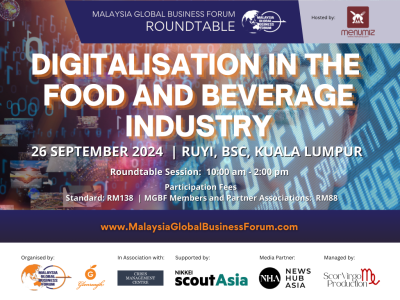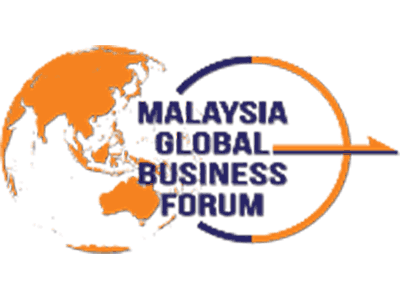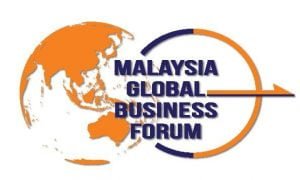 KUALA LUMPUR, Malaysia, March 28, 2017 /PRNewswire/ — The Malaysia Global Business Forum (MGBF) has recently conducted a series of high level discussions with stakeholders ahead of the launch of the MGBF Food Security Initiative next month. The goals of the discussions were to understand the role that rural planning and develop will play in the implementation of a successful food security strategy for the country and how that link to other efforts will across ASEAN.
KUALA LUMPUR, Malaysia, March 28, 2017 /PRNewswire/ — The Malaysia Global Business Forum (MGBF) has recently conducted a series of high level discussions with stakeholders ahead of the launch of the MGBF Food Security Initiative next month. The goals of the discussions were to understand the role that rural planning and develop will play in the implementation of a successful food security strategy for the country and how that link to other efforts will across ASEAN.
“The question is where to start? In the context of rural development needs to be seen in the broader context of demand for goods and services to a specific market that a particular group of people wish to supply, this in turn has a direct impact on how planning needs to take place in those areas. Rural communities are an important part of the story, they often bear the burden of food production or at least the production of raw materials for food production,” stated Nordin Abdullah, Founding Chairman of the Malaysia Global Business Forum.
“From an economic and infrastructure planning perspective, once key industries or products have been identified, the various smaller holders and cottage industries need to feed into stronger SME’s. While difficult, these companies need to be identified and capacity building of the existing SME’s within these areas will need to take place, this will be vital to the success of the rural economy. It is imagined that these SME’s will have the capacity to handle the increased financial and technological requirements for broader economic integration.”
“When we look at ‘Rural Economic Development and Food Security‘ we need to apply these same ideas, no doubt rural communities move at a slower pace than those in the big cities, as such change is easier to notice and by the same token, some amiss be it too much damage to the environment, not sharing the economic pie or a loss of cultural identity brought about by rapid social change. Yet we still need to bring about a sustainable development and modernisation that will be a part of the great good,” concluded Nordin who is also the Managing Director of Glenreagh Sdn. Bhd.
To move forward, an understanding of where in the supply chain will these cottage industries be, how can they be efficient and is there a demand for what they are able to produce? If not what are the alternatives for these people to create a livelihood. How can each of the sub sections of the rural economy be integrated into the overall economy?
In the context of Malaysia’sUSD15 billion food bill, the recent discussions have pointed to the fact that Sarawak may be able to bring to the table another advantages that the rest of the country doesn’t have, sustainable supply of electricity to power the cold chain that is needed to keep produce fresh on its way to global markets. Coupled with the possible advantages of availability of land, water and sunlight, Sarawak has been identified as a key contributor to the strategy moving forward, the challenge now is to develop a detailed plan moving forward.
Khathijah Md Jaafar, who is a leading expert in rural, planning and development from Sarawak agreed that there are opportunities in Sarawak. “Planning encompasses many dimensions, one very significant being rural development planning. Keeping in view the various definitions, we can say that the aim of all rural development plans is to utilize the available resources in the most optimum manner, effectively achieving the well defined objectives during a given period of time.”
“There are several reasons as to why we need to plan for the rural areas just like we do in urban areas. Through proper planning we can increase national income. The objective of planning is to utilize the resources of the country in such a manner that it should increase the size of national income. In the developing country like Malaysia, planning for rural development as well as urban development is useful to increase the productivity of the country. The second reason for undertaking planning is to provide employment. In the less developed countries and in the advanced countries the objectives of planning is to provide employment opportunities in the rural areas to reduce the rate of rural urban migration. The third reason is to ensure equal distribution of wealth. In a capitalistic market like Malaysia, planning can reduce the inequalities in income by reducing the the gap between the rich and the poor. Planning for rural development in Malaysia especially for states like Sarawak and Sabah helps reduce if not eliminate regional disparity. Special funding can be allocated for the development of backward areas and less developed areas. It is through planning that focuses on rural areas that the regional disparity could be reduced. A significant reason for planning for rural areas is for self sufficiency in food. As our country aims to become self sufficient in food, the objective can be achieved through proper planning of the rural areas. In each of the development the target was proposed for the agriculture sector.”
“In addition to food security, proper rural development planning increases the well being of the people through the provision of facilities like housing, schooling, transport, water, electricity and telecommunication (internet) that enables the rural population to be part of the globalisation process. Planning, last but not least, assists in reducing poverty through increasing the rate of economic development in the country. National income and per capita income will rise and poverty will be reduced.”
Khathijah, who is the Senior Planning Consultant of Daya Rancang, a planning company that has been operating inSarawak for more than 20 years concluded “Concern for the promotion of balanced development between urban and rural areas as well as the achievement of a well distributed and integrated development that will improve the welfare and quality of life of the rural people continues to be an important development policy agenda of the government of Sarawak. The development goal is to ultimately transform the vastly under-developed rural sector in the State into a thriving modern, attractive and economically viable living environment, whereby the present disparity or divide, in terms of income, economic activities and quality of life, between the urban and rural areas will be reduced.”
“It could then be argued that they need to be integrated into the Borneoeconomy followed by the rest of ASEAN and eventually the global economy should the conditions be suitable.”
The MGBF Food Security Initiative will continue to address how can rural communities, especially in Sarawak consistently produce a good or a service for a market outside of their vicinity for a price that is economically viable? Or can rural communities in Sarawak produce a good or a service that they are currently importing from somewhere else cheaper than what it cost to import?
The Malaysia Global Business Forum has created the MGBF Food Security Initiative to shed light on the sustainable trade and investment opportunities in Malaysia and across ASEAN. For more information, visit www.MalaysiaGlobalBusinessForum.com
News appeared in Markets Insider Mar. 27, 2017, 09:52 PM https://markets.businessinsider.com/news/stocks/linking-rural-economic-development-and-food-security-a-sustainable-approach-1001871762
Services
Stakeholder mapping, analysis, engagement and communication needs to be detailed to avoid business losses or even worse, a crisis. How can you do this effectively to prevent failure? ...
Data-driven business decisions have never been as crucial, especially in this era. MGBF leverages off, technology, experience and market presence to aid businesses in making accurate decisions. ...
MGBF provides comprehensive strategic advice and results-focused solutions to solve clients' problems in business-government relations so they can focus on their core business. ...
A critical business challenge is meeting the right decision-makers and potential buyers through the best channel and platform. How will you improve your business competency? ...
Upcoming Events
MGBF founding chairman Nordin Abdullah and UMW Toyota president Datuk Ravindran K. will delve into the convergence of automotive innovation and environmental sustainability in Penang, Sarawak, Johor and Pahang.
Hosted by menumiz™ – an end-to-end restaurant management system – this roundtable will feature a case study presentation and a panel session to discuss the latest digital trends, challenges, and opportunities within the food and beverage sector.
In this episode of 'A Working Lunch with Nordin', MGBF's founding chairman, Nordin Abdullah, will host this discussion focusing on the biggest threats and opportunities for businesses as we look to manage change in the South China Sea.
This MGBF Roundtable will focus on regional food security issues and trends in the regional supply chain, and trade regulations and policies, including a new geopolitical tool i.e., weaponisation of supply chains.
MGBF In The News
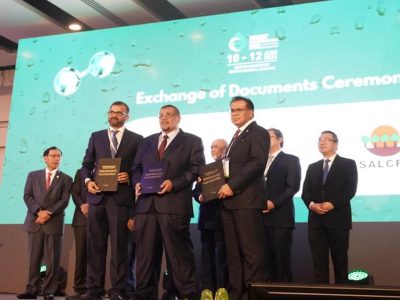
Planet QEOS, KIS BlOCNG San Bhd, and the Sarawak Land Consolidation and Rehabilitation Authority (SALCRA) have officially signed a tripartite memorandum of understanding (MoU) to establish a collaborative framework aimed at producing bio-hydrogen via the Steam Biomethane Reforming (SBMR) Process. The MoU was signed by Planet QEOS executive chairman Dino […]
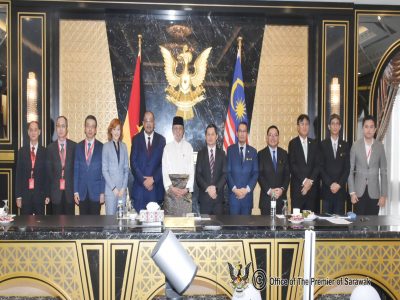
Planet QEOS and China Machinery Engineering Corporation (CMEC) are interested in investing RM10 billion to co-develop advanced Megawatt peak (MWp) agrovoltaic in Baram, to further boost Sarawak’s green energy initiative and food security. Sarawak Premier Datuk Patinggi Tan Sri Abang Johari Tun Openg was briefed on Friday by both the […]
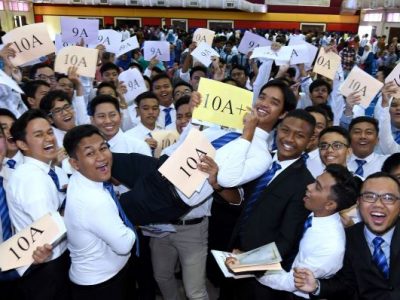
Last week SPM results came out, 373,974 aspirants who have been waiting patiently over the last few months would now know their fate. Some 10,109 have received all A’s, the golden standard of academic success and the ticket to those looking to study the “more advanced” subjects in university. Proudly, […]

The classic knee-jerk reaction is to say, fire the coach, change the leadership of associations, and reduce the funding till they start performing better. This kind of negative reinforcement may work for kindergarten children, but we are dealing with high-performance adults – individuals much further along in their psychological and […]
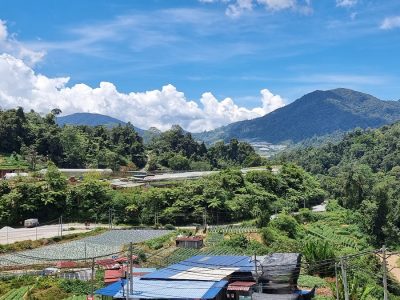
Since its earliest tea plantations in 1929, Cameron Highlands has grown to become a key player in the agricultural landscape of Malaysia, producing 40 per cent of all vegetables grown. Despite Malaysia shifting its economic focus away from agriculture, the industry remains imperative for food security and the livelihoods of […]
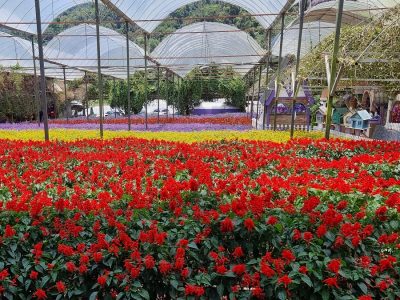
Although at first glance the travel industry and the agricultural sector appear to have nothing in common, they actually share more than meets the eye. The economic benefits of tourism to the agricultural sector can be multiplied several times over. “Tourism brings the end consumers closer to the source, which […]
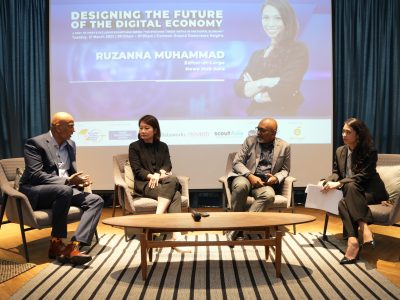
The Malaysia Global Business Forum (MGBF) recently held a high-level roundtable themed ‘Designing the Future of the Digital Economy’, attended by industry leaders and business associations. The guest of honour was Yang Berhormat Syerleena Abdul Rashid, the Member of Parliament (MP) for Bukit Bendera in Penang. The MP’s Special Session […]

The Malaysia Global Business Forum (MGBF) will be hosting a roundtable on ‘Designing the Future of the Digital Economy’ on 23 February 2023. It is the culmination of the first three MGBF Exclusive Roundtable Series titled ‘The Evolving Threat Matrix in the Digital Economy’ held throughout 2022. According to the […]
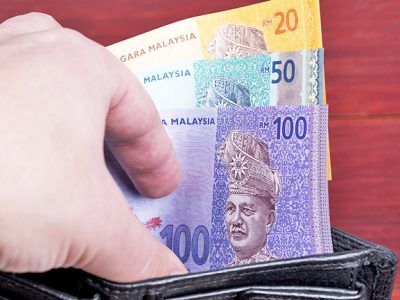
The Founding Chairman of the Malaysia Global Business Forum (MGBF), Nordin Abdullah, today spoke on Bernama TV’s leading English talk show, The Brief, hosted by Jessy Chahal, on the topic of a stable political reality and what that means for the Malaysian economy. Nordin said, “The first thing that it […]

More than 1,100 years ago, Muhammad ibn Musa al-Khwarizmi was developing the mathematical formulas that we know today as algorithms which now have become so intertwined with the business fortunes of global media giants and the very fabric of geopolitics. A series of recent high level international reports have revealed […]
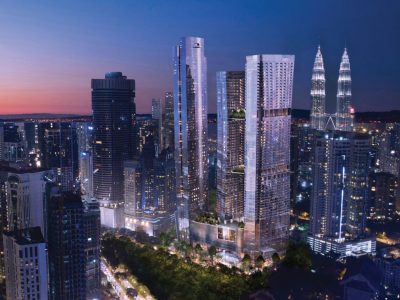
KSK Land has been recognised by the Malaysia Global Business Forum (MGBF) for its role in attracting high net-worth individuals to Malaysia post-pandemic. The first challenge in investor attraction is “selling” the country. In the context of Asia, Malaysia is competing with some very established investment destinations. The second […]
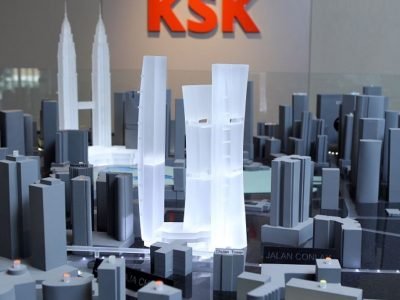
Malaysia, in particular Kuala Lumpur, continues to position itself as a regional centre to do business, educate a family and enjoy a global lifestyle. One company, KSK Land, has taken the lead in positioning itself and the city of Kuala Lumpur as a property investment destination for the global citizen […]
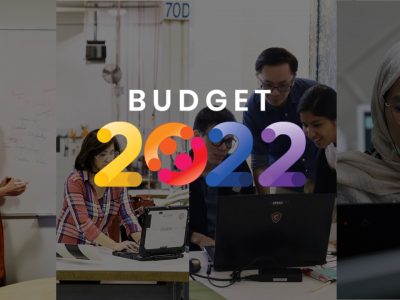
The upcoming budget represents an opportunity to build resilience in the critical sectors that will form the backbone of the country’s future-facing economic ambitions. This however needs to be achieved in the context of managing the community sectors most impacted by COVID-19 over the past two years. The Keluarga Malaysia (Malaysian Family) […]

Malaysia Global Business Forum (MGBF) has moved to support the creative economy as the overall economy moves into a recovery phase following the COVID19 pandemic. As a step in the direction of normalcy, the MGBF has agreed to host the art exhibition “I Know You’re Somewhere So Far” by one […]
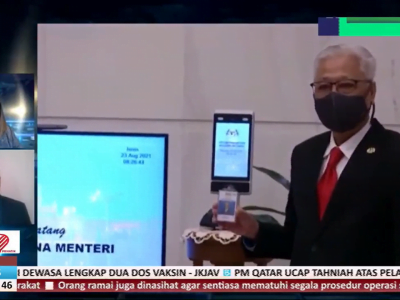
Congratulations to Datuk Seri Ismail Sabri Yaakob for taking up the mantle of the ninth prime minister of Malaysia. There is nothing normal about the situation; it could not have been scripted but it has kept the spectrum of media, mainstream and social, gripped. The first order of business for […]
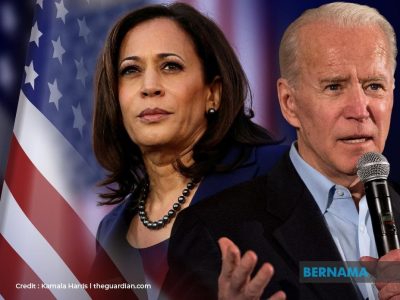
In a stirring speech to the nation, President Joseph R. Biden, Jr. stamped his brand of leadership on the presidency, in his first act as the 46th president of the United State of America, it signaled several shifts. Perhaps the weather was foreboding with snow falling before the ceremony that […]
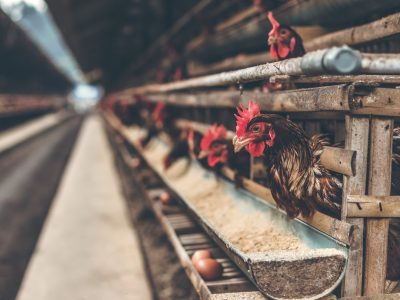
KUALA LUMPUR, 6 July 2022 – As the global economy continues to deal with unprecedented levels of disruption caused by the pandemic and the conflict between Russia and Ukraine, the convergence of energy security and food security issues has become a front-of-mind issue faced by policy makers and consumers alike. […]

KUALA LUMPUR, 23 June 2022 — Malaysia Global Business Forum (MGBF) ties up with scoutAsia to ensure that businesses are equipped with deeper regional insights. The past two years has seen a massive shift in the way businesses are conducted with digitisation, digitalisation and automation continuously being adopted to improve […]
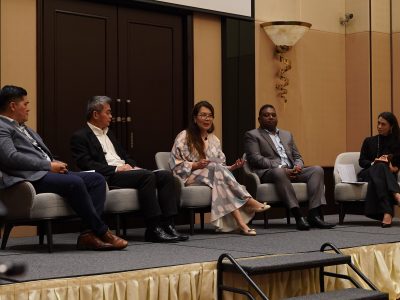
KUALA LUMPUR, 25 May 2022 – The Malaysia Global Business Forum (MGBF)’s exclusive roundtable on ‘Security Concerns in Critical Value Chains’ was held in a hybrid setting yesterday at the Eastin Hotel Kuala Lumpur. The guest of honour was Yang Berbahagia Tan Sri Dato’ Seri Rafidah Aziz, former minister of […]
 KUALA LUMPUR, Malaysia, March 28, 2017 /PRNewswire/ — The Malaysia Global Business Forum (MGBF) has recently conducted a series of high level discussions with stakeholders ahead of the launch of the MGBF Food Security Initiative next month. The goals of the discussions were to understand the role that rural planning and develop will play in the implementation of a successful food security strategy for the country and how that link to other efforts will across ASEAN.
KUALA LUMPUR, Malaysia, March 28, 2017 /PRNewswire/ — The Malaysia Global Business Forum (MGBF) has recently conducted a series of high level discussions with stakeholders ahead of the launch of the MGBF Food Security Initiative next month. The goals of the discussions were to understand the role that rural planning and develop will play in the implementation of a successful food security strategy for the country and how that link to other efforts will across ASEAN.






